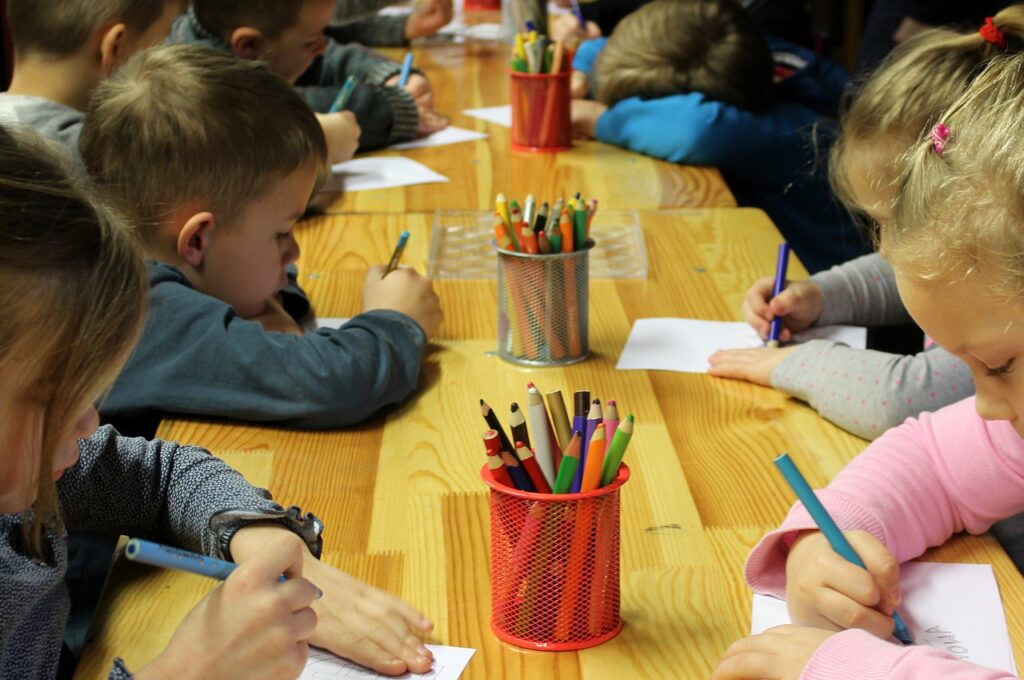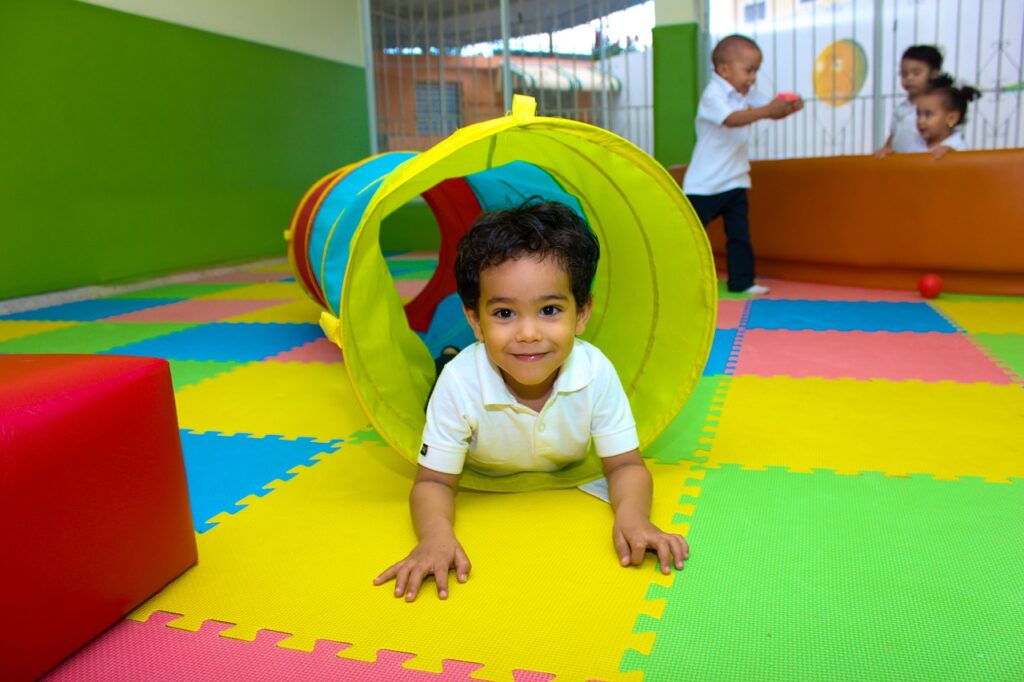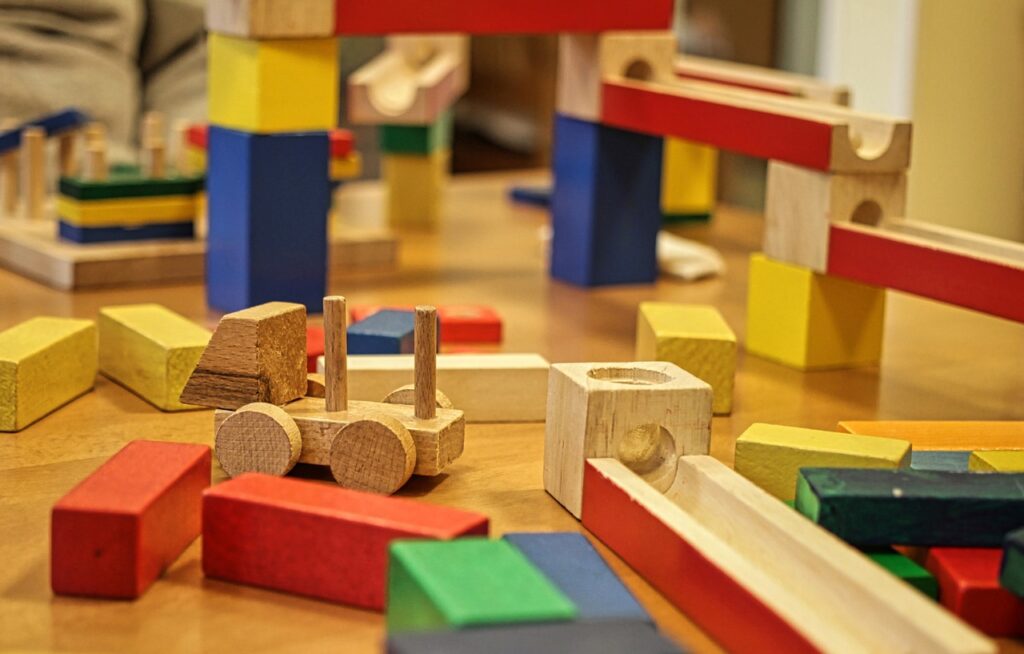With a growing number of long daycare centres offering preschool programs in more flexible settings, Nova Weetman is concerned the traditional preschool model is under threat.
Sessional kinder used to be the norm. When I was a kid, very few children that I knew went to childcare. Our parents (sadly, usually only mothers in that era) were home with us until we started school. Then, the year before we started school, we went to a sessional preschool. That is a preschool or kindergarten with a set number of hours per week, where the parents drop off and pick up at the same time each session, and where the children are in a particular group for the whole year.
My children have been fortunate enough to go to one of our area's last remaining session-only preschools. However, the pressure has been mounting for them to offer longer and longer places to accommodate working families.
Of course, long daycare centres with preschool programs are essential for families where parents work, as are excellent childcare facilities, but these centres offer a different service to sessional preschools. I fear that session-only places are under threat and need to be recognised as providing a unique service.
I fear that session-only places are under threat and need to be recognised as providing a unique service.
Essentially, sessional preschools offer a service focused entirely on the child (as the short hours are not facilitating a parent being able to work), while long daycare is about accommodating the working parents and the child. I don't believe these are interchangeable services - and they shouldn't be treated as such.
If we accept that parenting is one of the most individual paths we will all go on, then it is clear that we need various services to suit every family's needs. Somehow, in the battle to provide affordable high-level childcare, we seem to have created a division in society between those choosing to send their kids to childcare and those who don't. Sessional preschools are critical for families who choose to have their children at home until they start school.
These children use their experiences in these programs for socialising, problem-solving and for experiencing a group dynamic. They only have maybe five hours per week at three years, and then 15 hours per week at the 4-year-old preschool to experience this, so the programs need to be good.
The preschool that my children went to is at the end of our street. It is unusual because it is still run and operated by the families who attend it each year. There is a committee of management elected by the families, and this committee does everything.
They employ staff, tackle problems, track enrolments, and deal with grants, fundraising, maintenance and safety. In short, they run the preschool.
It means that families feel real ownership over how it operates and allow them a very real say in their child's environment.
Sessional preschools are different to the combined service of a long daycare that incorporates preschool programs. The children at sessional preschools all arrive and leave at the same time.
They are there for the same hours as the other children in their group, and the group is based on age. They are with the same children for the whole year, and they get to know each other's families because of the consistency of pick-ups and drop-offs. Long-day childcare programs are much more flexible. Of course, there is an advantage in this for many parents.
But it also means that children do not arrive and leave at the same time every session, and they are not all present for the same amount of hours and days. So relationships between children are different. Again, I'm not arguing that this is better or worse, just that it's different. And it offers something different to families and their kids.
Recently, I heard the news that my children's old preschool would no longer be running as a sessional-only program. Instead, from next year, they will be running an extended-hours service like almost every other preschool in the area.
This is not something the committee of management wanted to see happen, but because of economics. It is so financially difficult now for families to survive on one full-time or two part-time incomes that sessional preschool is a luxury they can't afford for most families.
According to 2013 Australian Bureau of Statistics data, over 65% of service providers offering preschool programs are long-term daycare centres in New South Wales and Queensland. In other states, stand-alone preschools still dominate, but this is changing.
Suppose we continue down the path of making decisions about the way we parent based more and more on demand-driven economics. In that case, our choices as parents will be fewer and fewer and sessional preschools won't exist in many communities.
And, for parents who want to ease children into structured environments, they'll have nowhere left to go - which is just not okay. As it stands, most sessional-only preschool programs are around $1000 per year.
And free of charge if you have a healthcare card. Longer days are much more expensive for families, and if it's not even the program you are looking for, to begin with, then it makes it hard to justify.
About Kindergarten
Our kindergarten programs foster the agency and capabilities of each child by providing a strength-based approach to learning and development. We recognise that children have different learning styles, are competent contributors to their knowledge and will be supported to make choices and decisions.
We have 2 options for families accessing their year before school funding in a formal kindergarten program at Bubup, Sessional and Integrated (long day care) Kindergarten. It is often down to the needs of each family or age of the child that determines which kinder program your child should access. The learning, programs, and curriculum outcomes are the same in our sessional kindergarten as in our integrated long daycare kindergarten programs.
A qualified early childhood teacher delivers the kindergarten programs. They're designed to improve your child's development in:
- social skills, like how to play with other children in a calm, sharing and rewarding way
- self-awareness, resilience building and respect for others
- emotional skills and self-regulation, for example, understanding their feelings
- language, literacy and numeracy skills, such as reading stories and counting objects
- a joy for learning and group activities, such as talking, drawing and making things together with other children their age
- ability to make new friends
- Exposure to new ideas and concepts.
- Provides opportunities to build skills that are important for life and supports school readiness.
Difference between long daycare and sessional kindergarten

Both our long daycare centres and sessional kindergartens offer an approved kindergarten program. Sessional kindergartens run during school term and school hours, meaning the program run for 40 weeks per year, from 8.30 am to 2.45 pm.
While in long daycare centres, the kindergarten programs also run 40 weeks of the year during similar hours; however, additional hours of care are provided in the morning, afternoon and during school holidays.
At Catholic Early EdCare, the kindergarten program is run by university-qualified early childhood teachers at both sessional kindergartens and long daycare centres. This means your children will benefit from the best in early education teaching, including preparation for school, social development and language, literacy and numeracy skills, all with a strong focus on individual development.
Benefits of sessional kindergarten
Sessional kindergarten offers many benefits, including the development of a school-like routine. Consistently attending during school hours and the structure of a kindergarten day with meal times, indoor and outdoor play all occurring simultaneously each day can help young children feel more ready to start school.
All sessional kindergartens are co-located with a primary school. The children make regular visits to the school and participate in events as part of the wider school community. For those children who will attend that primary school in the future, it can be a great way of getting to know the other children and staff. Our sessional kindergartens provide an excellent setting for young children to develop confidence and familiarity in a school-like environment.
Benefits of a kindergarten program in long daycare centres
The kindergarten program in long daycare centres also runs for 40 weeks each year during school hours. However, extended hours of care are provided. This is very convenient for working families whose other commitments mean caring for more hours each week.
In long daycare centres, the kindergarten children get to enjoy additional experiences outside of the kindergarten program. The children regularly mix with their younger peers and have the opportunity to take on mentoring roles.
Research has shown that these interactions have many benefits for children. For children who already attend long daycare, starting kindergarten within the service means benefiting from established relationships with other children and educators. This is also a great option for families who have more than one child in care, as you will be able to keep your kindergarten-aged child and their siblings together.
Difference Between a Day Care Center & Kindergarten
Daycare centres offer developmental programs, and kindergarten schools provide instructive programs for specific age groups of children. The teacher-child ratio in daycare centres varies depending on the age groups of the children. Most kindergarten programs have one certified teacher and one teacher assistant for each class group. In both types of programs, the teachers and other staff are required to maintain open communication with parents and inform parents of their children's progress and development.
A daycare refers to an institution that provides care and supervision to infants and young children without their legal parents. Kindergarten is a type of preschool for children from three to five years of age. In some places, it denotes the first year of schooling and focuses on five-year-old children. However, the usage of the terms varies from country to country.
Daycare provides an opportunity for the parents to leave their children in the custody of some responsible people. These people take good care of the children in the absence of their parents. Daycare can also be referred to as a crèche, nursery or child care.
The concept of daycare emerged in France around 1840. Later, the United States followed the idea by opening various institutions like the ones in France. As a result, the daycare industry is a flourishing industry. Daycare centres are generally preferred by families where both the parents are working. A child care provider provides all the amenities that are required to take good care of the children.
Daycare centres serve infants, toddlers, preschoolers, and school-aged children. The workers of these centres guide the children in daily living and recreational activities. They are also responsible for the physical care of children. Many daycare centres also provide early learning programs.
These words define the original essence of a kindergarten. 'Kindergarten' means the children's garden. An educational pioneer, Fridrick Frobel, introduced this term. He recognised the need for a place for children that promotes curiosity within them and focuses on a child's overall development. Today's context denotes the first year of compulsory schooling, which focuses on children between three to five years of age.
Opening Hours
Kindergarten classes are usually based in elementary schools and operate during normal school hours. The schedules for kindergarten programs at elementary schools may be half-day, with three- to four-hour programs starting in the morning or the afternoon.
Alternatively, the children may be enrolled in full-day kindergarten programs. Daycare centres offer more extended operating hours in comparison to elementary schools. In addition, some daycare centres provide kindergarten programs with operating hours that extend beyond the normal opening hours for elementary schools.
Employees and Teachers
Kindergarten programs are generally offered for children between 4 and 5 years old. They prepare the students for the next grade level in school, and the teachers organise the learning activities concerning specific core curriculum programs designed for kindergarten students.
Kindergarten teachers are required to be certified in elementary education. Daycare centre employees may have experience in child care, and some attendants may be licensed in early childhood education. Still, daycare employees are usually not required to have teacher certifications unless the employees are hired to teach kindergarten or preschool programs.
Learning Activities
Daycare providers conduct age-appropriate developmental activities for children, whereas kindergarten teachers structure subject-based activities to promote children's academic skills. While children are attending school as part of a kindergarten program, their daily schedules include the core academic subjects, such as math, reading, science and art. Therefore, independent playtime and outdoor activities may be limited in comparison to daycare programs. With daycare programs, the teachers organise activities to help children with their cognitive, social or emotional development and provide more supervised playtime for children in each age group.
Child Care

Kindergarten programs do not incorporate child care services, whereas daycare centres primarily focus on offering child care programs for parents. The child care programs may be early morning or after-school programs and full-day child care for infants, toddlers, and older children. In addition, although many kindergarten classes are held in elementary schools, some elementary schools also offer early morning and after-school child care for all enrolled students, separate from the kindergarten classes.
These institutions are custom-made to suit children of this particular age. In countries where kindergarten is meant for children up to five years of age, any six-year-old child can take admission in the first grade of school. Generally, the teachers need to be certified in elementary education to teach in a kindergarten. Unlike daycare, a kindergarten does not focus much on child care. Instead, kindergartens are more education oriented. The classes in a kindergarten follow the concept of an elementary school. They usually operate during normal school hours.
Comparison between Kindergarten and Daycare:
Kindergarten
- Definition
- Kindergarten denotes a type of preschool. It generally focuses on five-year-old children.
- Origin
- From German Kindergarten, literally "children's garden."
- Advantages
- It involves learning through play-based methods.
- It helps in building a child's confidence.
- A fun-based environment helps in fast learning.
- They offer various activities which stimulate and engage a child's mind.
- It prepares the children for primary school.
- It helps to develop social skills.
- Types
- In few countries like India and Korea, kindergarten classes are divided into two categories –
- Lower Kindergarten – for the children between three to four years of age. Focuses more on play-based activities.
- Upper Kindergarten - for children between four to five years of age. More inclined towards the education's side.
- Hours
- Generally, full day.
- Types of activities
- Age-appropriate developmental activities
Daycare
- Definition
- A daycare refers to an institution that provides supervision to infants and young children without their legal parents.
- Origin
- From Old English dæg "day," also "lifetime," + Old English Carian, cearian "be anxious, grieve; to feel concerned or interest."
- Advantage
- Daycare centres are often inspected to ensure the quality of the care provided to the children.
- Generally, they are less expensive than hiring a nanny.
- Staff members are usually trained and professional.
- They aim to provide an organised and structured form of care.
- Are available for various age groups of children
- Types
- Daycare centres can be divided into two categories – Non-profit daycare and For-profit daycare.
- Local governments like municipalities often run non-profit daycare centres.
- Any individual or group can operate for-profit daycare centres. However, most of the time, a license is required to start a daycare.
- Hours
- Generally, for a few hours.
- Type of Activities
- Subject-based activities to promote the academic skills of children
CONCLUSION
Getting away from economics, some children need a more managed start to structured learning environments. Some children won't cope with long daycare or coming and going at different times to everyone else. Some children need the smallness and the consistency of a sessional preschool program before going into the huge school arena. If sessional preschools disappear as an option - then what's left for those children?
Kindergarten provides your child with an opportunity to learn and practice the essential social, emotional, problem-solving, and study skills that he will use throughout his schooling. The development of self-esteem is one of the important goals of kindergarten.
Means a pre-school service offering a planned programme to pre-school children for a total of not more than 3.5 hours per session.
This allows children to access up to 15 hours a week of funded kindergarten delivered by a qualified early childhood teacher. Families can access a sessional kindergarten service at low or no cost if the child: is Aboriginal and/or Torres Strait Islander.

